This article was medically reviewed by Victor Catania, MD. Dr. Catania is a board certified Family Medicine Physician in Pennsylvania. He received his MD from the Medical University of the Americas in 2012 and completed his residency in Family Medicine at the Robert Packer Hospital. He is a member of the American Board of Family Medicine.
There are 18 references cited in this article, which can be found at the bottom of the page.
wikiHow marks an article as reader-approved once it receives enough positive feedback. This article received 20 testimonials and 87% of readers who voted found it helpful, earning it our reader-approved status.
This article has been viewed 299,247 times.
Research suggests that if you experience pain in your back between your ribs and your buttocks, or even down your sides into your groin area, you may be having kidney pain.[1] Although back pain is not always caused by your kidneys, you should talk to your doctor to make sure you don't have any serious medical conditions. Experts note that treating your kidney pain will depend on its cause, and your doctor can make the best recommendations for your situation.[2]
Steps
Relieving Kidney Pain
-
1Drink plenty of fluids. This is the single most important thing to relieve kidney pain. You should drink between two to three liters of water per day when healthy, but you may need more to help you pass kidney stones.[3] Water helps wash away bacteria and dead tissues from the kidney. Stagnant urine is an excellent medium for bacterial growth. By drinking plenty of water, you can create a continuous flow of water through the kidney which prevents bacteria from growing and multiplying.[4]
- A small kidney stone (<4mm) may also be passed spontaneously with urine if the flow is adequate.
- Limit your intake of coffee, tea, and cola to one to two cups per day.[5]
-
2Get plenty of rest. Sometimes bed rest can be helpful in reducing pain.[6] If your pain is caused by a kidney stone or kidney injury, excessive movement or exercise could cause your kidney to bleed.[7]
- Lying on your side could aggravate your kidney pain.
Advertisement -
3Apply heat to reduce the pain. A hot pad or warm cloth may be applied to the site of pain for temporary relief. Heat improves blood flow and reduces nerve sensation, both of which reduce pain. Heat may be particularly helpful if your pain is caused by a muscle spasm.[8]
- Do not apply too much heat, as this could cause burns. Use a heating pad, soak in a hot bath, or use a cloth that’s been soaked in hot (but not boiling) water.
-
4Use analgesic medications. There are some over-the-counter painkillers that can fight kidney pain. Acetaminophen/paracetamol is commonly recommended for pain caused by infections and kidney stones. Consult with your doctor before taking any pain medication, as some can increase kidney problems or interact with other medical conditions.[9]
- Do not take high-dose aspirin. Aspirin can increase the risk of bleeding and can worsen any vascular obstruction, like a kidney stone.
- NSAIDs can be dangerous if you have decreased kidney function. Do not take ibuprofen or naproxen if you already have a kidney condition, unless it's recommended by your doctor.[10]
-
5Consult with your doctor about antibiotics. Antibiotics should be used if you have any kind of urinary tract infection. Kidney stones can cause stagnant urine to get backed up in the kidney, which in turn causes bacterial growth and may lead to an infection. If this is the case, your doctor will prescribe you with an antibiotic.[11]
- Common antibiotics used in this type of infection are Trimethoprim, Nitrofurantoin, Ciprofloxacin, and Cefalexin. In mild to moderate infection, men should be treated for 10 days while women should be treated for three days.
- Always take the full course of antibiotics prescribed to you, even if you begin to feel better and your symptoms disappear.
-
6Avoid excess vitamin C. Vitamin C is generally helpful to the human body; particularly when it comes to the healing of wounds and bone formation. However, excess vitamin C gets converted to oxalate in the kidney. This oxalate can then turn into a stone, so avoid getting excess vitamin C if you are prone to developing kidney stones, or have a history of stones in your family.[12]
- People who are prone to developing calcium oxalate stones should limit their consumption of oxalate-rich foods such as beets, chocolate, coffee, cola, nuts, parsley, peanuts, rhubarb, spinach, strawberries, tea, and wheat bran.[13]
-
7Drink cranberry juice regularly. Cranberry juice is an amazing natural remedy for kidney and urinary tract infections. It starts to act within eight hours of consumption by preventing bacteria from increasing and colonizing. It also helps to dissolve struvite and brushite kidney stones.
- Avoid cranberry juice if you have an oxalate stone, as it contains significant amounts of vitamin C and is high in oxalates.
Knowing What Causes Kidney Pain
-
1See a doctor if you think you may have a kidney infection or pyelonephritis. Kidney infection begins as a urinary tract infection and progresses to your kidneys. It can cause permanent damage to the kidneys if it’s not treated promptly.[14] One or both kidneys may be infected, causing a deep, dull pain in the abdomen, back, side, or groin. If you have the following symptoms, seek medical attention as soon as possible:
- Fever, possibly with chills
- Frequent urination
- A strong and persistent urge to urinate
- Burning or pain while urinating
- Pus or blood in the urine (may be red or brownish)
- Foul-smelling or cloudy urine
- Seek emergency medical attention if you have these symptoms combined with nausea and vomiting
-
2Talk to a doctor if you think you have kidney stones. Kidney stones are one of the main causes of kidney pain. The pain starts when the kidney tries to get rid of the stone and has a problem doing so. This sort of pain generally comes in waves.
-
3Go to the emergency room if you think your kidney may be bleeding. The bleeding could be caused by trauma, disease, or drugs. Some bleeding disorders may lead to blood clot formation in the kidney. When the clot impairs blood supply to any part of the kidney, the pain starts. This sort of pain also comes in waves but is generally felt in the flank. The flank is located between the upper belly area and the back.[17] Other symptoms of kidney injury include:[18] [19]
- Abdominal pain or swelling
- Blood in the urine
- Drowsiness or sleepiness
- Fever
- Decreased urination or difficulty urinating
- Increased heart rate
- Nausea and vomiting
- Sweating
- Cool, clammy skin
Warnings
- If you are experiencing kidney pain, talk to a doctor right away.⧼thumbs_response⧽
References
- ↑ https://www.kidneyfund.org/kidney-disease/kidney-problems/kidney-pain.html
- ↑ https://www.kidneyfund.org/kidney-disease/kidney-problems/kidney-pain.html
- ↑ http://www.mayoclinic.org/healthy-living/nutrition-and-healthy-eating/in-depth/water/art-20044256
- ↑ http://www.medicinenet.com/cystinuria/page2.htm
- ↑ http://www.nlm.nih.gov/medlineplus/ency/patientinstructions/000135.htm
- ↑ http://www.nhs.uk/Conditions/Kidney-infection/Pages/Treatment.aspx
- ↑ http://www.nlm.nih.gov/medlineplus/ency/article/001065.htm
- ↑ http://www.uofmmedicalcenter.org/healthlibrary/Article/116080EN
- ↑ http://www.nhs.uk/Conditions/Kidney-infection/Pages/Treatment.aspx
- ↑ https://www.kidney.org/atoz/content/painMeds_Analgesics
- ↑ http://www.medicinenet.com/kidney_pain/page5.htm#how_is_kidney_pain_treated
- ↑ http://www.bui.ac.uk/PatientInfo/ureterstent.html
- ↑ http://www.upmc.com/patients-visitors/education/nutrition/Pages/low-oxalate-diet.aspx
- ↑ http://www.mayoclinic.org/diseases-conditions/kidney-infection/basics/definition/con-20032448
- ↑ http://www.medicinenet.com/kidney_stones/page6.htm
- ↑ http://www.medicinenet.com/kidney_stones/page6.htm
- ↑ http://www.nlm.nih.gov/medlineplus/ency/article/003113.htm
- ↑ http://www.nlm.nih.gov/medlineplus/ency/article/001065.htm
- ↑ http://www.mayoclinic.org/symptoms/kidney-pain/basics/when-to-see-doctor/sym-20050902
- ↑ ”Natural treatments for kidney stones,” Salem Press Encyclopedia of Health, 2012
- ↑ https://www.kidney.org/atoz/content/kidneystones
About This Article
Before you try to treat your kidney pain, visit your doctor for a diagnosis of the problem, since it may be something more serious. In addition to what your doctor says, you can take simple steps at home to reduce your kidney pain. Drink plenty of water and other fluids, which can help flush out your kidneys. Make sure to include cranberry juice as a daily drink, since it stops bacteria growing in your kidneys. You should also try to get plenty of rest, since lots of movement can cause bleeding if you have a kidney injury. While you rest, apply a hot pad or warm cloth for temporary pain relief. Heat helps blood flow and reduces the sensitivity of your nerves, making the pain more bearable. If natural pain relief methods don’t work, take paracetamol or another over-the counter painkiller. If you think you have abdominal pain, see blood in your urine, or experience an increased heart rate, seek emergency medical attention. For tips from our Medical co-author on how to tell if you've injured your kidney, keep reading.
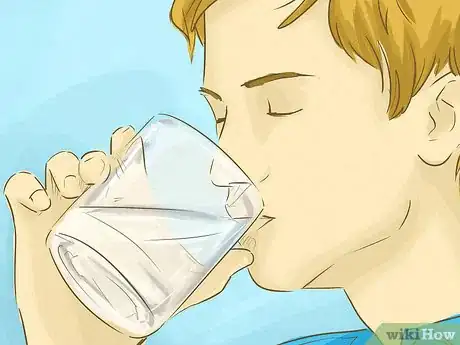
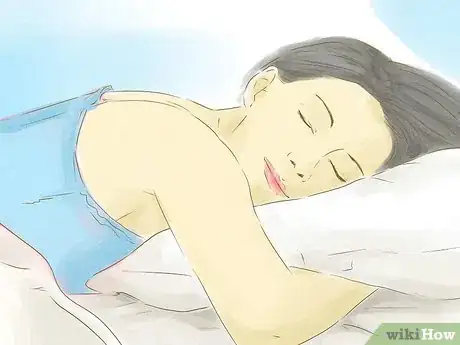
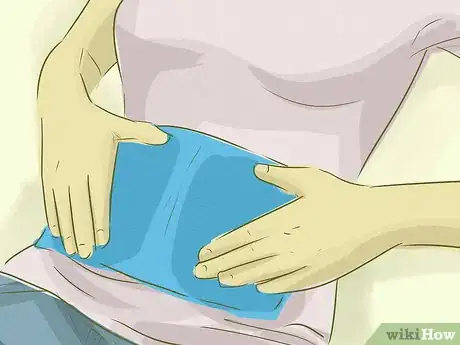
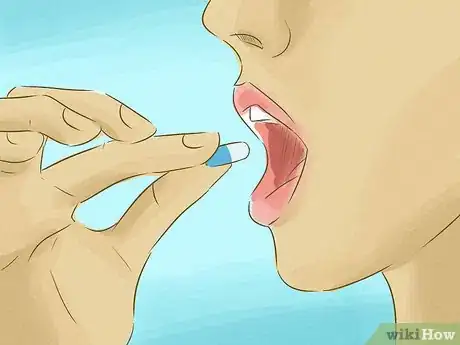
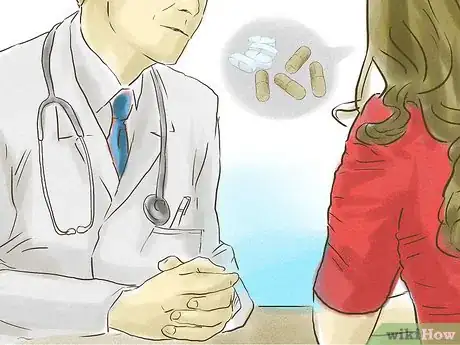
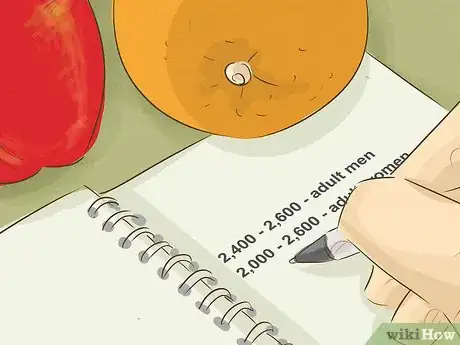
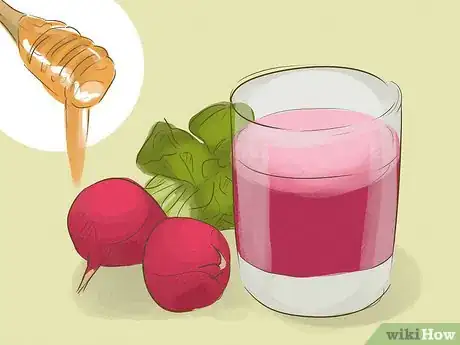
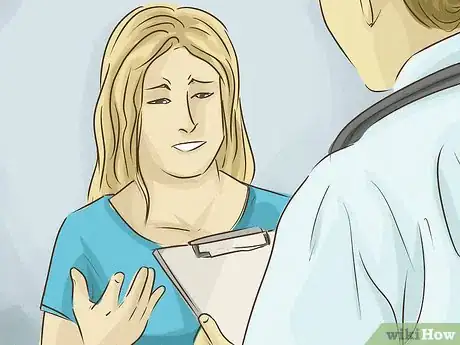
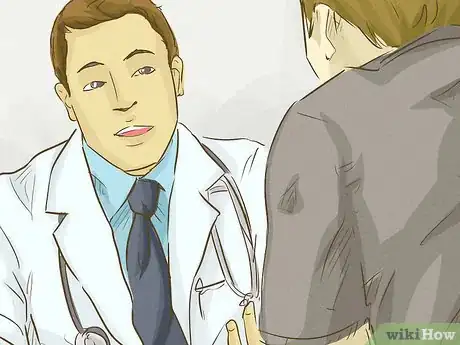
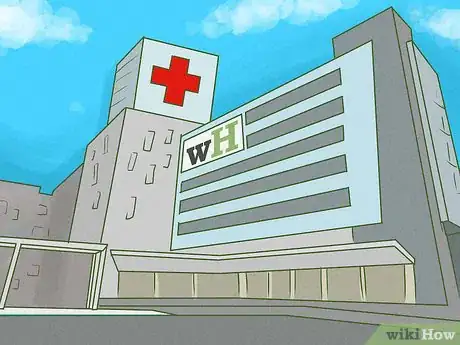
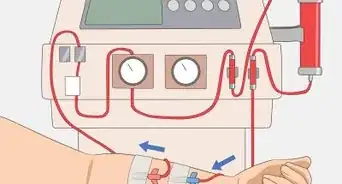

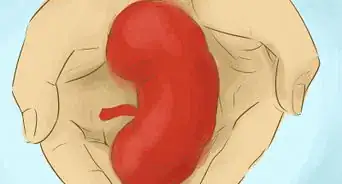

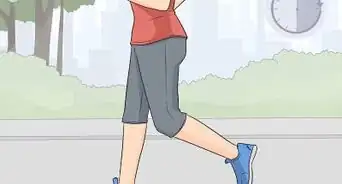
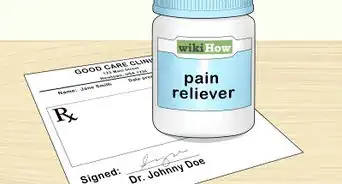
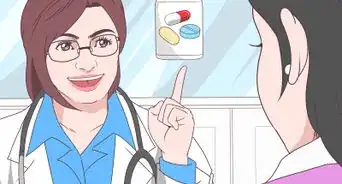


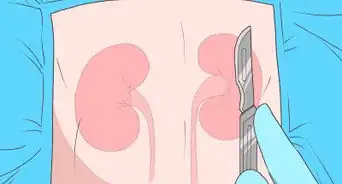
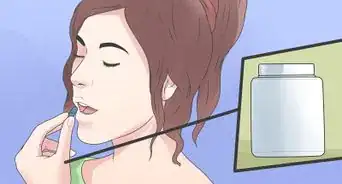
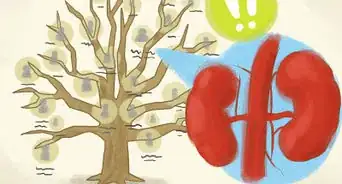
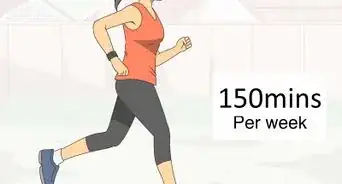
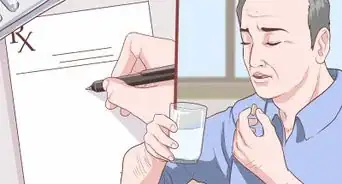










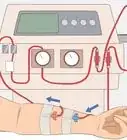

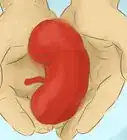




































Medical Disclaimer
The content of this article is not intended to be a substitute for professional medical advice, examination, diagnosis, or treatment. You should always contact your doctor or other qualified healthcare professional before starting, changing, or stopping any kind of health treatment.
Read More...